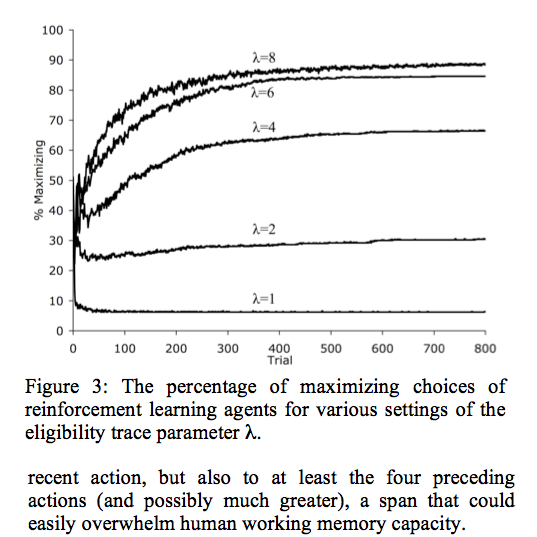Abstract: Situations that present individuals with a conflict between local and global gains often evoke a behavioral pattern known as melioration — a preference for immediate rewards over higher long-term gains. Using a variant of a binary forced- choice paradigm by Tunney & Shanks (2002), we explored the potential role of global feedback as a means to reduce this bias. We hypothesized that frequent explicit feedback about future expected and optimal gains might enable decision makers to overcome the documented tendency to meliorate when choices are rewarded probabilistically. Our results suggest that the human tendency to meliorate is tenacious and even prospective normative feedback is insufficient to reliably overcome inefficient choice allocation. We identify human memory limitations as a potential source of this problem and sketch a reinforcement learning model that mimics the effects of a variable feedback horizon on performance. We conclude that melioration is a powerful explanatory mechanism that can account for a wide range of human behavior.
 Keywords: Melioration, maximization, sequential decision making, Harvard game, feedback, stable suboptimal performance (SSP), rational task analysis (RTA).
Keywords: Melioration, maximization, sequential decision making, Harvard game, feedback, stable suboptimal performance (SSP), rational task analysis (RTA).
Resources: Download_PDF | Google Scholar
